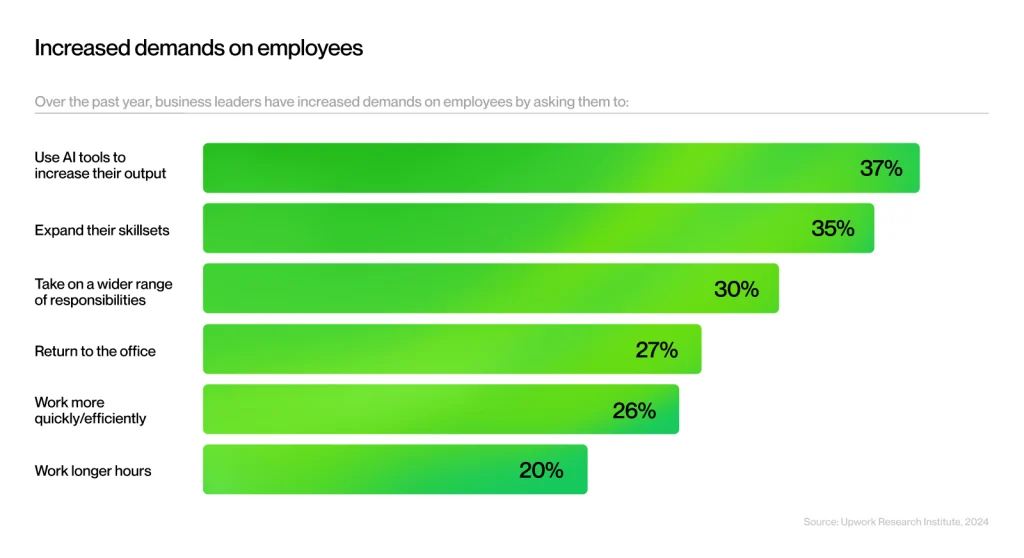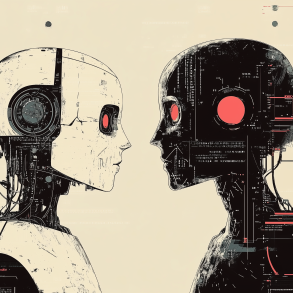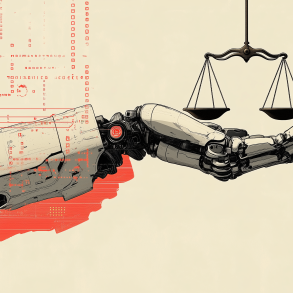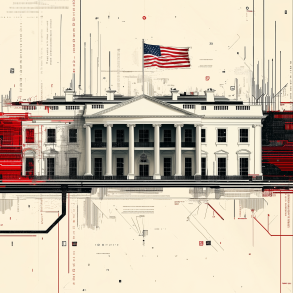Artificial intelligence is often touted as the next big productivity booster, with some predictions it will even replace jobs. However, a new study suggests that AI might be increasing workloads instead.
Upwork, a freelance platform, conducted a survey involving 2,500 workers across the U.S., U.K., Australia, and Canada, including C-suite executives, employees, and freelancers who engage in computer-based work. The survey yielded several key insights.
Among the C-suite leaders surveyed, an overwhelming 96% expect AI to boost productivity. Approximately 37% believe AI will help employees increase their output, 30% anticipate it will enable employees to take on a broader range of responsibilities, and 20% expect longer working hours as a result. Notably, 39% of companies mandate the use of AI by employees, while 46% encourage it.

Despite these expectations, fewer than 26% of leaders who foresee productivity improvements through AI actually offer any AI training programs. Moreover, only 13% have a well-implemented AI strategy. There’s a disconnect between leaders and employees: 37% of leaders think their workforce is highly skilled in AI, but only 17% of employees agree. In fact, 38% of employees feel overwhelmed by the AI tools they are required to use at work.
While 65% of employees believe AI has the potential to enhance productivity, nearly half (47%) of those using AI report they don’t know how to use it effectively to meet their employer’s productivity expectations.
Contrary to the promise of reduced workload, 39% of employees spend more time reviewing or moderating the content generated by AI. Additionally, 23% spend extra hours learning to use AI tools, and 21% are required to work more hours. Overall, 40% of employees feel that their company’s expectations regarding AI use are unrealistic.
The report’s authors note,
To truly leverage AI’s power, we must fundamentally shift how we organize talent and work. Bringing greater balance to productivity and well-being requires new ways of working. Doing more with less, ignoring alternative talent pools, and sticking with top-down productivity measurement simply won’t work in the era of AI.”









